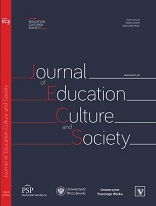Support of active ageing through P2P learning
Support of active ageing through P2P learning
Author(s): Barbara Baschiera, Willem De MeyerSubject(s): Social Sciences, Education, Adult Education
Published by: Fundacja Pro Scientia Publica
Keywords: older adults;peer to peer learning;key competences
Summary/Abstract: Personal development throughout the course of life is at the core of several important policy documents that have shaped European cooperation in economic, social and educational sciences over the last decade. The paradigm of Lifelong Learning implies learning at any age of life and underlines the importance of achieving continuous knowledge and self-care. Pedagogy has started taking into account the age of older adults only in recent years. The European project we are going to illustrate sought to test how well peer to peer learning can be useful to define new training and learning models for older adults. The HiHtaST (Hand in Hand to a Social Tomorrow) project provides an example of peer to peer learning among older adults. We provided training for adult learners to teach IT among other older adults as ameans for social inclusion in five European countries. Each country had 20 learners /trainers who had other older students in turn. Multiple choice questionnaires and focus groups were used to collect data. The project was run in the theoretical framework of active ageing, considering the paradigm of Vygotsky’s zone of proximal development and co-construction of knowledge. The project results show that adults can acquire knowledge in peer to peer group situations with no drop-outs especially when learning real and practical tasks, which suggests that peer to peer learning works better than a frontal class in formal as well as non-formal or informal situations.
Journal: The Journal of Education, Culture, and Society
- Issue Year: 7/2016
- Issue No: 1
- Page Range: 180-192
- Page Count: 13
- Language: English

